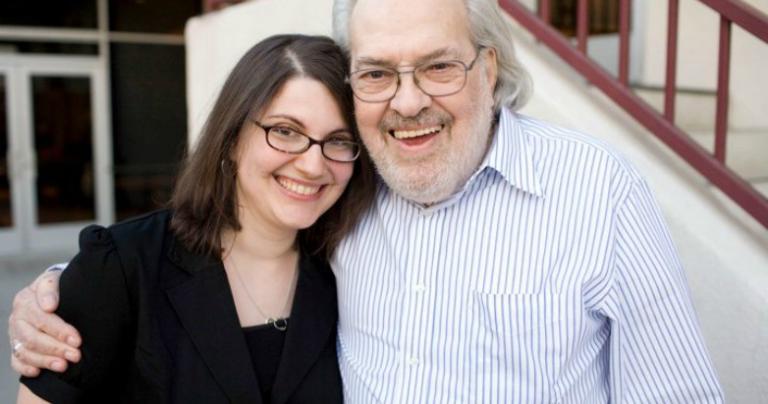The best teacher I know is called Al and we honor the best students in the college and high school with his name. If you are a teacher, you should wish to be called Al.
A very great teacher recently asked me what a class with Al Geier is like. What does he do? I will try to tell you, though in one sense, no class is exactly like another. A Geier class ends up where the conversation takes it and so the students are (nearly) as important as the master teacher.
Of course, two important reminders to those attempting to be called an Al at home:
First, Al knows the texts he teaches. You must know the text to lead a discussion on the text. The lightly read must pontificate what he has gained from Wikipedia and a quick read to prove his knowledge. If you are Al, you can wait and be patient with a student, because you understand the text. You are not afraid.
Second, Al is for every student, but not for anyone who wants a credential. If you face students who want to jump through a series of hoops like animals to get the treat of a credential, then Al is no good for you. Anybody can be a good student, but not everybody wishes to be. An Al will reach out to anyone, but though many are called, few will choose to be a student.
That is sad, but true.
A class with Al Geier begins very simply with a book. A group of students meet in a room, the more comfortable the better, because you are in for a long session. There is no real “end” and if the bell rings, you might have to ignore it, because the text is just being unlocked for you!
Al will often, though not always, begin by asking one student to begin reading a section of the text he has highlighted as important. The pace of the reading must be very slow, because every student is encouraged to interrupt whenever she has a question. This part of the class is the danger zone. If students must posture and show what they “know,” then real learning will be delayed.
I once went to a session where a credentialed person spouted off and then left. Why stay? That is the fortunate case, because sometimes the spouter will stay and then the class may fail. If Al has a virtue, it is patience. He presumes there will be many sessions and that the power of the text will wear down the arrogant. This does not always happen, but an Al is never a tyrant. He will never cut off a student.
At some point, if the class jells, then some student will have an insight. Often this is wrong, as the discussion shows, but she believes in it passionately. Al will then prod and see if the text fits that insight. If it does not, then it might be good, true, and even beautiful, but it must be set aside, because for the moment, we are focussed on the text.
The conversation continues, goes on, beats down on our endurances, until we hit the zone. A good class with Al must last five hours with average students, because it takes us that long to get our stuff out of the way and begin to speak truth. At that point, Al will drop an insight from his reading of the Greek in the text and we will ponder this insight.
We will often (violently) disagree. I have fought with Al about the nature of Alcibiades for thirty years. We have made progress, but we are not yet resolved on the issue! It is not endless discussion for no purpose, but finding new truths as old ideas are abandoned and new variations are explored. I have a similar opinion to the one I once had, but a better version! I am learning. At some point, I suspect, in the eternity of God, I will come to agreement with Al and we will go on to another question.
At the very end of class, Al will give a short summary of what he has seen and what we might see when we next meet.
A good class with Al Geier produces few notes . . . because one is thinking too hard, but the few notes one gets are priceless.
This is not the only way, but it is the high way. It is beyond me, so perhaps I should share the way I teach . . . the student of Al Geier who must follow the lower orbit further from the stars.













